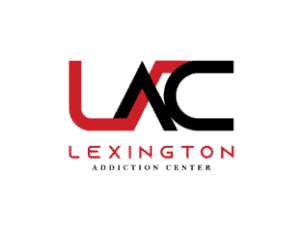Celebrating a 32% Drop in Overdose Deaths: How Lexington Addiction Center Helped Save Lives in 2024
In early March 2025, Mayor Linda Gorton stood before local news crews, her tone hopeful yet resolute. “Through prevention, treatment, recovery services, and harm reduction strategies, we are working together as a community to save lives,” she remarked. That announcement carried powerful news: Fayette County had recorded just 120 overdose deaths in 2024—down from 177 the previous year—a remarkable 32% decrease.
This wasn’t a fluke; it was the result of coordinated community action. Every single naloxone reversal—356 performed by Lexington firefighters—every peer outreach event, and every person referred into treatment contributed to this success story.
Lexington Addiction Center’s Pivotal Role
At the heart of this progress stands the Lexington Addiction Center (LAC). As an outpatient treatment hub, LAC offers Medication-Assisted Treatment (MAT), trauma-informed therapy, peer recovery support, and life-skills development. Combining compassionate connection with evidence-based care, the center has helped individuals reclaim stability and hope during their most vulnerable moments.
Bridging the Gap to MAT
Medication-Assisted Treatment blends FDA-approved medications—like buprenorphine or injectable Vivitrol—with therapy and coaching. LAC’s approach ensures clients manage withdrawal safely, reduce cravings, and engage in ongoing counseling. The result? Improved retention, fewer relapses, and a clear path toward recovery—a practical and hopeful alternative to overdose pathways.
Peer Coaches: The Heartbeat of Healing
Perhaps even more powerful are LAC’s peer recovery coaches: individuals with lived experience who guide, inspire, and hold space for clients. These coaches meet people where they are, sometimes literally, handing out naloxone kits in neighborhoods, bus stops, and community centers. Scott Luallen, one such outreach worker, distributed over 5,000 kits between 2024 and March 2025, each kit a beacon of hope and a potential lifesaver.
A Unified Community Effort
The dramatic decline in overdose fatalities was not the result of a single initiative but a testament to the collective effort of Lexington’s health leaders, first responders, and grassroots organizations. The Lexington Fire Department, through its dedicated Quick Response Team, became a frontline force in this fight—distributing 230 naloxone kits in 2024 and reversing 356 overdoses with swift, life-saving interventions. Police officers contributed significantly as well, with naloxone stocked in every cruiser, enabling them to administer the medication more than 180 times over a two-year span. At the same time, the Lexington-Fayette County Health Department expanded its harm reduction programs, offering fentanyl test strips, syringe exchange services, and community education campaigns designed to break stigma and equip residents with the tools to save lives. Together, these coordinated efforts formed a safety net that caught countless individuals on the brink of tragedy.
Turning Numbers into Names—and Futures
Reflect on the firefighter who administered naloxone during a 2 a.m. call, or the peer coach whose presence convinced someone to take that first step toward treatment. These aren’t just acts of service—they’re affirmations of faith and humanity. As Shawn McCarty, now a program coordinator at Tracy’s House, reflected on his own recovery, “It’s been an overwhelming experience today, meeting the people who probably supplied the Narcan that saved my life.”
Sustaining the Win—and Looking Ahead
Despite the celebratory tone, Mayor Gorton did not sugarcoat the challenges ahead: “Every life lost to addiction is one too many.” The Opioid Abatement Commission is actively guiding investments in treatment expansion, public awareness, upstream prevention, and long-term recovery infrastructure.
For LAC, the roadmap is clear. The center plans to continue:
- Scaling MAT services
- Strengthening peer-led outreach
- Deepening partnerships with fire, police, and the Health Department
- Championing harm-reduction education and community access
The True Measure of Progress
In 2024, Fayette County’s decline in overdose deaths was significant. But as PBS put it, “this is a moment to acknowledge progress, but we know that our work is far from over.” Nationally, overdose deaths began falling—but only by single digits (~10%)—while Kentucky’s initiatives saw triple-digit local reductions.
Final Reflections: Healing Built on Partnerships
Lexington’s story is powerful because it’s about joined hands, not solo efforts. It’s the firefighter, the therapist, the peer coach, the parent, the neighbor—all working together to create change. And at its center stands Lexington Addiction Center, a community anchor rooted in evidence, empathy, and partnership—a symbol of what’s possible when care is clinical and personal.
Together, we can build on this success—to save more lives, restore more families, and extend the promise of recovery to every corner of Lexington. If you or a loved one is struggling with addiction, Lexington Addiction Center is here to help. Contact us today to learn more about our MAT and recovery programs.

| Medically Reviewed By: Board-Certified Psychiatrist and Addictionologist |

| Clinically Reviewed By: Board Certified Clinical Social Worker |
Yes, Your Insurance Covers Detox and Rehab Treatment

Contact Us Today

Addiction and co-occurring disorders don’t have to control your life. Lexington Addiction Center is waiting with open arms to give you the tools necessary for lasting change. Reach out to us today to learn more.
Get Family Support Now
Supporting Families Through Recovery
We understand addiction affects the whole family. Our comprehensive family program helps rebuild trust and restore relationships.
Weekly Family Therapy Sessions
Educational Workshops
Support Groups
Communication Skills Training
Get Family Support Now


 859-681-7823
859-681-7823
